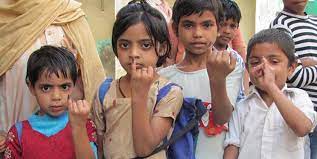Stay healthy this Ramadan
Maintain a healthy diet and drink plenty of water
Avoid smoking, junk food, and foods high in sugar content
Follow food safety measures
Stay active and sleep well
Stay safe this Ramadan
Wash your hands often and well
Wear your mask
Maintain physical distance
Practice proper sneezing and coughing etiquette
Avoid large gatherings and events, especially if you are among high-risk groups or if you’re feeling unwell
Keep the spirit of Ramadan alive during COVID-19
Reflect, improve, pray, share, and care – all from a healthy distance
Offer special prayers for the sick, alongside messages of hope and comfort
Ensure that family, friends, and elders are still engaged despite physical distancing
Virtually check up on loved ones by phone or video calls
Find new ways to help others this Ramadan
Avoid crowded “mercy tables” and consider distributing individual pre-packaged boxes/servings of food
Use digital technology for sadaqat or zakah
The International Islamic Fiqh Academy has ruled that zakat money may be used to procure and deploy COVID-19 vaccines.
There is no evidence to suggest that fasting can increase risk of COVID-19 infection
Healthy people should be able to fast
COVID-19 patients or those showing symptoms post infection may consider religious licenses to break their fast in consultation with their doctor
If you are hosting sohour, iftar, or other social events this Ramadan
Consider hosting virtual gatherings and limit physical attendance to people you already live with
Hold smaller events with fewer attendees rather than large gatherings
Ensure good ventilation indoors, or use outdoor venues
Consider measures to facilitate contact tracing in case an ill person is identified among attendees
Encourage healthy practices at mosques and places of worship
Perform wudu at home when feasible and use personal prayer rugs
Ensure washing facilities are equipped with soap and water
Provide alcohol-based hand-rub (at least 80 ethanol or 75% isopropyl alcohol) at entrance and inside mosques
Regulate flow of people entering, attending, and leaving from mosques or other venues
Ensure availability of disposable tissues and bins with disposable liners
Ensure frequent cleaning of worship spaces and buildings
In settings where movement restrictions are in place, incidents of domestic violence, particularly against women, children, and marginalized people are likely to increase
Religious leaders can actively speak out against violence and provide support or encourage victims to seek help
If you are offered the COVID-19 vaccine during Ramadan know that
Prominent fatwa bodies, such as Al Azhar Al Sharif, have ruled that taking the vaccine will not invalidate the fast because it is delivered through injection and not from a natural opening such as the mouth or nose.
Prominent fatwa bodies such as the International Islamic Fiqh Academy have declared that COVID-19 vaccines are permissible under Shariah law
Even if you have already been vaccinated, continue taking public health and social measures to protect others from possible transmission.
If a country is offering its people the COVID-19 vaccine during Ramadan
It is encouraged to work with local religious leaders to promote vaccine intake and continue vaccination campaigns without interruption.
Inform the public that prominent fatwa bodies such as the International Islamic Fiqh Academy have declared that COVID-19 vaccines are permissible under Shariah law, and that fatwa bodies, such as Al Azhar Al Sharif, have ruled that taking the vaccine will not invalidate the fast.












